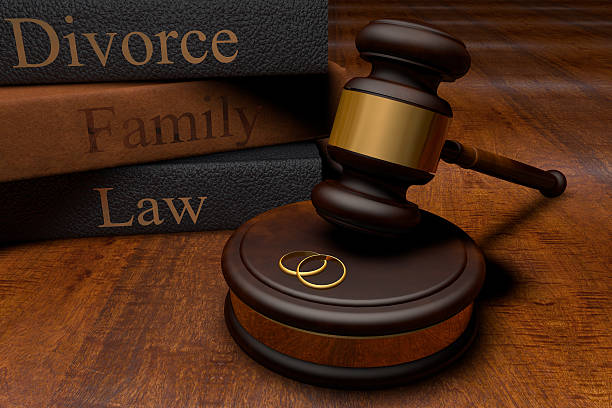The Family Law Act 1975 has divorce laws for couples who want to separate or divorce. But what is divorce? Divorce is the legal termination or end of a married couple’s relationship. However, married couples should prove a 12-month separation before applying for divorce since the courts presume that there is a chance of resuming cohabitation.
Cohabitation refers to a situation wherein two people live on a genuine domestic basis while having sexual relations without being married. This situation is most common with people in de facto relationships. A couple is considered to be in a de facto relationship if they are together for at least 2 years and are cohabiting. Read on to know more about divorce laws and how it affects married and de facto couples.
Where Should Couples Apply for a Divorce?
Some ex-couples feel lost on where to apply for a divorce. Moreover, some couples can’t reach an agreement in getting a divorce because one party may not want to. So, what can couples do if they want to apply for a divorce? Do they apply together? Or does one party make an application by themselves?
The Federal Circuit and Family Court of Australia accepts sole divorce applications and joint divorce applications for divorcing couples. But, what are the differences between these two applications? A sole application for divorce is a more complicated process since:
- The other spouse does not want the divorce
- Some couples are unable to work with their spouse on a joint application form
- Some couples are unable to find their spouse
Couples who apply for a sole divorce application must serve the application to their spouse after the court’s approval. On the other hand, both spouses are required to sign a joint divorce application if they both agree to get a divorce. Couples may apply for both of these applications once they satisfy the eligibility requirements to get a divorce.

Section 56: Divorce Order
According to divorce laws, Divorce Order is also known as a Divorce Certificate. The Judge or Registrar will prepare a memorandum and the date on which the divorce order took effect. A divorce order is granted to parties that resolved their divorce in court. Any person is entitled to receive a divorce order/certificate as long as any of the following persons have signed the divorce order/certificate:
- Chief Executive Officer or a Senior Registrar of the Federal Circuit and Family Court of Australia (Division 1);
- Chief Executive Officer or a Senior Registrar of the Federal Circuit and Family Court of Australia (Division 2); or
- Registrar of any other court
Section 57: What Happens If Parties Reconcile?
According to divorce laws, the family court may revoke a divorce order before it takes effect if ex-spouses decide to reconcile within the proceedings. Reconciliation occurs when separated parties re-establish their marriage or de facto relationship.
Section 13B(1) of the Family Law Act requires the court’s judges, registrars, and judicial registrars to consider the possibility of reconciliation of the parties from time to time. Lawyers and the family court have a responsibility to inform couples who are involved in separation or divorce proceedings about reconciliation.
Some lawyers may encourage this at an early stage to avoid unnecessary stress, legal fees, and Court resources. The following people may provide reconciliation and family counselling information to parties who may want to reconcile:
- Legal practitioners
- Family Counsellors
- Family dispute resolution (FDR) practitioners (mediators and arbitrators)
Divorce Laws: Certificate Issued to Reconciled Parties
Typically, courts won’t consider the possibility of reconciliation if property settlement and the finalisation of divorce have begun. A family counsellor may draft a certificate if parties consider reconciliation which is commonly referred to as a Section 60I certificate. This certificate may include any of the following information:
- A person refused to attend family dispute resolution because they did not want to;
- A person did not attend family dispute resolution because the practitioner thought it was inappropriate.
- The parties attended FDR but made no genuine efforts to resolve the problem.
- There was family dispute resolution attendance, and the parties made a genuine effort to resolve the issues; or
- The parties attended family dispute resolution, but the practitioner determined that it was inappropriate to continue.
Section 58: Divorce Order Revocation Due to Miscarriage of Injustice
According to divorce laws, courts may revoke a divorce order or rehear proceedings if there were grounds for miscarriage of justice involved in the proceedings. However, the courts must find out evidence of a miscarriage of justice before the divorce order has taken effect. Here are the court’s grounds for miscarriage of justice:
- Fraud
- Perjury
- Suppression of evidence
- Any other circumstance that may lead to rescinding the divorce order
Section 59: What Do Divorce Laws Say About Remarriage?
Parties who are involved in divorce proceedings may remarry after one month and one day after the finalisation of a divorce order. Couples who just came from a divorce must provide their marriage celebrant with a Notice of Intended Marriage at least one month before the wedding date. Here are the following people that can act as a marriage celebrant:
- Commonwealth-registered marriage celebrant
- Commonwealth-registered religious marriage celebrants
- State and territory-regulated celebrants
- Ministers or religion
Indeed, first marriages have their own legal complexities and there are certain requirements like:
- A marriage notice signed by both parties in the presence of an authorised celebrant, Justice of the Peace, or solicitor;
- Both parties’ passports or birth certificates; and
- Statutory declarations stating the current marital status of the parties
Section 60: No Appeals After the Finalisation of a Divorce
According to Section 60 of the Family Law Act, once the final divorce order/decree is made effective, there is no other way to have it appealed right away. People who may want to appeal a divorce order must do so within 28 days of the order’s date. The divorce order is automatically postponed until one month after the appeal is heard and decided on grounds of miscarriage of justice mentioned in Section 58.

Our Family Lawyers’ Knowledge of Divorce Laws
JB Solicitors’ experience and knowledge of all divorce laws are helpful for parties who want to end their marriage properly. There are a lot of state laws and regulations that ex-couples may not know about when going through a divorce.
That’s why our team is here to guide ex-couples through proper procedures like filing and drafting legal documents and if couples want to consider going through our mediation and arbitration services.
Contact our team today for more information about divorce laws.
